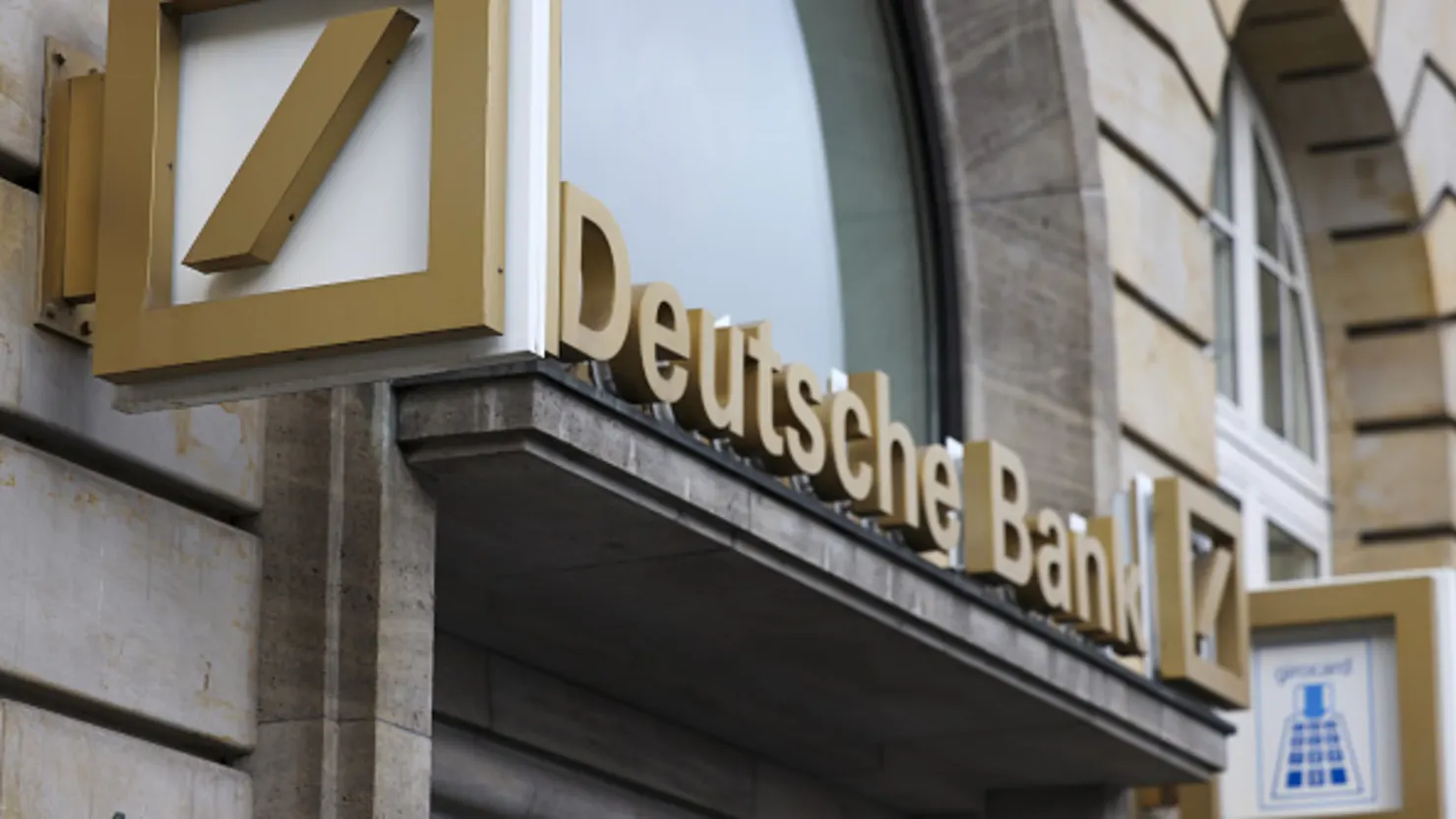Deutsche Bank’s shares dropped 4.3% on Wednesday after the bank’s return to profit in the third quarter fell short of investor expectations. The German lender posted a net profit attributable to shareholders of €1.461 billion ($1.58 billion), surpassing analyst estimates of €1.047 billion, according to an LSEG poll, yet still failing to boost market confidence.
The bank’s revenue also exceeded expectations, reaching €7.5 billion compared to the forecasted €7.338 billion. Despite these strong figures, investors remained unimpressed, as the stock continued to slide.
Key Highlights from Q3 Results:
- Profit before tax rose 31% year-over-year to €2.26 billion.
- Credit loss provisions more than doubled, reaching €494 million, compared to €245 million in the same period last year.
- The CET 1 capital ratio, a key solvency measure, increased to 13.8% from 13.5% in the second quarter.
- Return on tangible equity (ROTE) rose to 10.2%, or 7.6% after accounting for litigation provisions, up from 7.3% year-on-year.
RBC analysts noted that the higher credit loss provisions were “disappointing but not unexpected,” adding that core division revenues were “slightly soft,” while investment banking stood out with stronger performance.
Germany’s largest lender had previously reported a €143 million loss in Q2, when it decided against launching a second share buyback program this year. Litigation over the acquisition of Postbank also impacted the bank, though 60% of plaintiffs have since settled, providing some relief.
Litigation Boost and Share Buybacks
Deutsche Bank partially released €440 million of litigation provisions during the third quarter, which helped boost its profit. The bank has since applied for a share buyback, which had been delayed by the legal proceedings.
Chief Financial Officer James von Moltke emphasized the importance of moving past these legacy issues to avoid surprising investors with additional provisions. CEO Christian Sewing confirmed that Deutsche Bank aims to exceed its original capital distribution goals for shareholders, with buybacks planned for 2024.
Investment Banking Drives Performance
The bank’s investment banking unit continued to perform well, with revenues increasing 11% year-over-year to €2.5 billion. The fixed income and currencies division contributed to this growth. Asset management revenues also rose by 11%, reaching €660 million.
Von Moltke highlighted these two divisions as the “standout performers” in the third quarter, noting that the corporate and private banking divisions met expectations, despite facing challenges from the interest rate environment.
Economic Outlook and Sector Trends
Von Moltke expressed some disappointment with the slow pace of economic recovery in Germany, but he remains optimistic about broader macroeconomic trends. He also pointed to potential market volatility surrounding the upcoming U.S. election, which could impact foreign exchange markets and policy expectations.
European banks, including Deutsche Bank, have benefited from stock buybacks and dividends in recent years. However, analysts warn that declining interest rates, following the European Central Bank’s shift in monetary policy, may challenge the sector’s profitability. McKinsey’s Global Banking Annual Review 2024 suggested that banks must cut costs at a rate 2.5 times faster than revenue declines to maintain current returns on equity.
Deutsche Bank, whose stock has gained nearly 30% year-to-date, has been implementing a cost-cutting strategy, including plans to reduce headcount by 3,500 roles by 2025. This follows the 800 job cuts announced last year. The bank’s full-time workforce now stands at 90,236, having added 766 employees in Q3.
As the market awaits third-quarter results from other major European banks like Barclays and UBS, Deutsche Bank continues to downplay the possibility of a merger with domestic rival Commerzbank, which is being eyed by Italy’s Unicredit.





